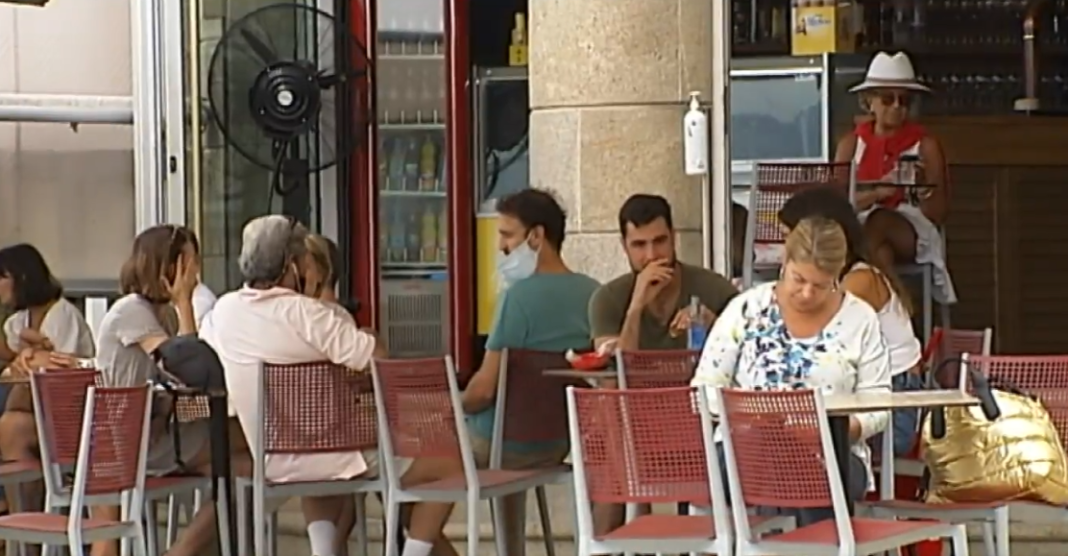On Tuesday, the Valencian Community will begin to apply a raft of new restrictions on nightlife and hospitality, agreed last Friday with the Ministry of Health, to try to stop the expansion of the coronavirus, according to sources from the Ministry.
That is the day on which the measures will be published in the Official Gazette of the Generalitat Valenciana (DOGV), at which point they will immediately come into force.
Ana Barceló will hold a meeting with Public Health this Monday morning in order to confirm the specific wording at which point it will be passed for publication in the DOGV.
So as of Tuesday, all nightlife venues will be completely shut down while hospitality establishments, such as bars and restaurants, will be required to close by 1am. No new patrons will be allowed to enter the premises from midnight onwards.
Bars and restaurants also need to guarantee a minimum safe distance of 1.5 metres between customers, both at the bar and whilst they are eating at a table. The maximum number of diners around one table will be limited to 10.
Another measure to be introduced is a blanket ban across the community on smoking in public, if a two-metre distance cannot be observed. Some regions, including Galicia and the Canary Islands, had already introduced such a measure.
Minister Ana Barceló said it was quite right that these actions are being introduced in all autonomous communities, pointing out that “it is necessary to coordinate the measures if we are to achieve greater effectiveness, taking into account mobility and the holiday period in which we are”.
With their nightlife severely curtailed there is a concern that many youngsters will return to the custom of drinking in the street, a practice known in Spain as a botellón. “Let there be no doubt,” said the Minister of Health, “Drinking in the street is prohibited, you are not allowed to do so under any circumstances and fines will be levied in a strict manner.”
The measures are being introduced as a result of the worrying number of new cases of coronavirus registered in the 24 health authorities of the community where, in just one month, from July 16 to August 13, positive cases have increased by 1.022% on average throughout the Community. In absolute terms, they have has gone from 253 cases in July to 2,840 in August. This means that the number of positives per PCR + has multiplied at this time by almost 12.
The most touristic and populated areas – such as the Valencian capital and it’s metropolitan area; together with Elche and it’s area of influence- are the ones that have registered the most cases, while in other municipalities such as Dénia, Castelló, Orihuela and Torrevieja the effect of the virus has also multiplied in recent weeks, although in quantitative terms the impact is far less.
In the 72 hour period between last Wednesday and Saturday, two new outbreaks were confirmed in Callosa and Albatera with twelve positives in the two localities, 20 new infections in Torrevieja and 17 in the city of Orihuela
The Ministry of Health confirmed 81 new cases of coronavirus and one death in the Vega Baja hospital in those three days, 52 in the Orihuela Health Department, dependent on the Vega Baja Hospital, and 29 in the Torrevieja health area.
By municipalities, in the three day period new cases have been detected in 11 of the 27 localities of the Vega Baja. In Torrevieja, 20 new positives have been confirmed by PCR, 17 in Orihuela, 11 in Albatera, 11 in Callosa de Segura, 5 in Almoradí, 4 in Pilar de la Horadada, 2 in Benejúzar, 2 in Algorfa, one in Granja de Rocamora, one in Benferri and one in Redován.
The new measures announced by the Government and the Autonomous Communities, the most restrictive since the lifting of the state of alarm, is tightening the rules in the social sphere and in the hospitality and nightlife sectors. But a lack of clarity is also causing confusion amongst the businesses affected by them, particularly with regard to some of the wording.
No doubt, once again, much will depend on the interpretations placed on the regulations by the different municipalities and the competence of their local police forces.





